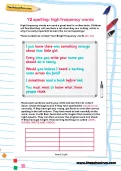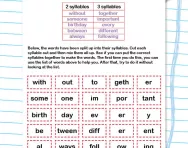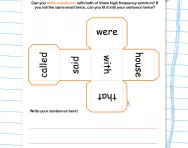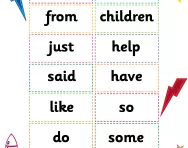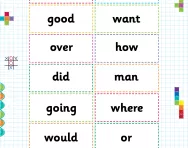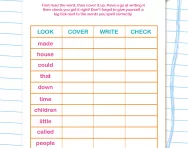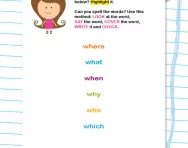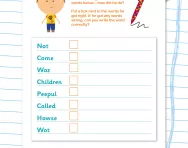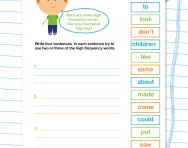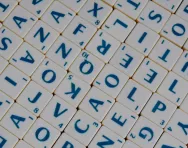Important update from TheSchoolRun
For the past 13 years, TheSchoolRun has been run by a small team of mums working from home, dedicated to providing quality educational resources to primary school parents. Unfortunately, rising supplier costs and falling revenue have made it impossible for us to continue operating, and we’ve had to make the difficult decision to close. The good news: We’ve arranged for another educational provider to take over many of our resources. These will be hosted on a new portal, where the content will be updated and expanded to support your child’s learning.
What this means for subscribers:
- Your subscription is still active, and for now, you can keep using the website as normal — just log in with your usual details to access all our articles and resources*.
- In a few months, all resources will move to the new portal. You’ll continue to have access there until your subscription ends. We’ll send you full details nearer the time.
- As a thank you for your support, we’ll also be sending you 16 primary school eBooks (worth £108.84) to download and keep.
A few changes to be aware of:
- The Learning Journey weekly email has ended, but your child’s plan will still be updated on your dashboard each Monday. Just log in to see the recommended worksheets.
- The 11+ weekly emails have now ended. We sent you all the remaining emails in the series at the end of March — please check your inbox (and spam folder) if you haven’t seen them. You can also follow the full programme here: 11+ Learning Journey.
If you have any questions, please contact us at [email protected]. Thank you for being part of our journey it’s been a privilege to support your family’s learning.
*If you need to reset your password, it will still work as usual. Please check your spam folder if the reset email doesn’t appear in your inbox.
Y2 spelling: high frequency words
What words should your Year 2 child be learning to spell?
In their weekly spelling lists, children will explore a variety of spelling patterns, including:
- Silent letters like k, g, and w (e.g., 'knock', 'gnat', and 'write')
- Words ending in le, el, al, and il (e.g., 'meddle', 'tunnel', 'animal', 'pencil')
- Verbs ending in y, which change to ies and ied (e.g., 'copy', 'copies', and 'copied')
- Dropping the final e before adding -ing, -ed, or -er (e.g., 'hiking', 'hiked', and 'hiker')
- Words that require a doubled consonant before adding -ing or -ed (e.g., 'pat', 'patting', 'patted')
- Unusual vowel uses, such as 'o' for the 'u' sound ('other') and 'a' for the 'o' sound ('warm')
- Words with suffixes (letters added to the end of a word) such as -ly, -ment, -ful, -ness, and -less
- Words using apostrophes for contractions (e.g., 'do not' becomes 'don't')
- Words ending in -tion (e.g., 'fiction')
- Homophones, which are words that sound the same but have different spellings (e.g., 'hear' and 'here')
What are high frequency words?
High frequency words are words that appear very often in spoken and written language. They are commonly used and are essential for reading fluency and comprehension. These words don't often follow phonetic rules, making them difficult for young children to decode.
How will this Year 2 spelling words worksheet help your child?
This Year 2 spelling words worksheet focuses on high frequency words. It was created by an experienced educator and based on the National Curriculum. You will be given several sentences containing Year 2 high frequency words and your child will need to write them out and practise correcting any they may get wrong. This activity will help embed their learning and help them understand the correct spelling for high frequency words.
For more help with spelling, check out our hub page, or try a new challenge such as our Year 2 common exception words flashcards.
